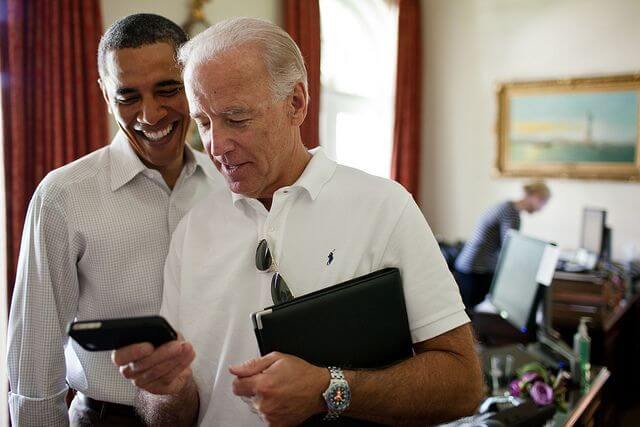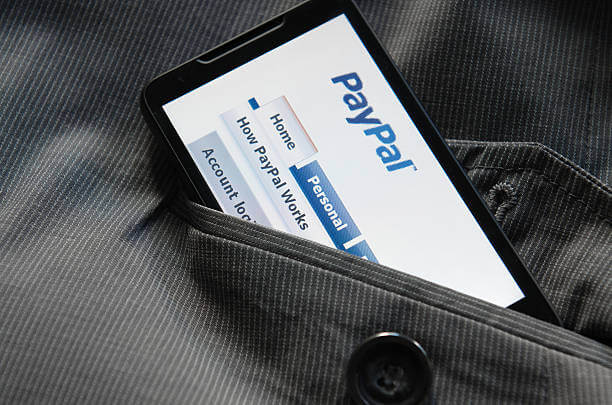President Joe Biden passed the American Rescue Plan Act in March 2021 which lowered some parts of the Internal Revenue Code. The law lowered the reporting requirement to receive a Form 1099-K in a calendar year for payments received from online processors like PayPal. Before this law was passed, many self-employed individuals avoided taxes by using online payment processors.
PayPal is required to report gross payments received for sellers who receive $20,000 in gross payment volume AND 200 transactions or more. Many freelancers took advantage of this low reporting requirement by staying under the minimum condition and not paying taxes. The current laws do not require you to report payments on a Form 1099 for tax returns.
Now that PayPal will be issuing a 1099-K more often, it'll be difficult to hide. You don't want to risk a penalty for not filing a 1099. The actual amount of income reported to the IRS may even be higher than what you actually received. In this article, we'll go over the updates to the tax laws and how it impacts freelancers.
Note: With the new requirements, it's going to be a lot harder to avoid a PayPal Form 1099-K. You'll need to pay taxes on your business income. The best way to lower your taxable income for your income tax return is to track tax write-offs. Bonsai Tax can help you with that. Our app will scan your bank/credit card receipts to discover potential tax write-offs automatically. Users typically save $5,600 from their tax bill. Claim your 7-day free trial today.

The New Gross Payment Volume Requirement
IRC Section 6050W Internal Revenue Code (IRC) Section 6050W states that all US payment processors are required by the IRS to give information to the IRS about certain customers who receive payments for the sale of goods or services through PayPal.
When sending and receiving money on PayPal and Venmo - what is changing? Let's break down the tax implications.
What is Form 1099-K?
Form 1099-K is an IRS information tax form used to report payments received by a business or individual for the sale of goods and services that were paid via a third-party network (like PayPal). A 1099-K will be sent to you and the IRS. In other words, when the IRS receives this form, they'll know you need to pay tax on your earnings.
The IRS requires third-party transaction networks to issue a Form 1099-K, which shows the total amount of payments received from a third-party transaction network in the calendar year.
Form 1099-K Changes
The threshold change for Form 1099-K is currently only for payments received for goods and services transactions. In the eyes of the IRS, any income cumulated through a peer-to-peer payment app is no different than any other business transaction that comes from a regular bank account.
However, whenever you send personal payments to your friends or family members using PayPal or Venmo for dinner, gifts, shared trips, etc-- it would not count as the reportable income.
The American Rescue Plan Act of 2021 changed the reporting threshold for third-party settlement organizations such as CashApp, Venmo and PayPal for goods and services transactions to $600 or more in annual gross sales in the same year. Remember, the current reporting threshold is 200 transactions or more and $20,000 in payment volume from sales in goods or services in a single calendar year.
One example is if a client paid you $35,456 in services rendered via PayPal in 2021. Because it doesn't meet the minimum of 200 transactions, you would not receive a Form 1099-K from PayPal.
The Form 1099-K change will take effect on January 1, 2022.
States Who Already Shutdown The Tax Loophole
At a State level, several states have already closed this reporting loophole.
For example, Maryland, Vermont, Massachusetts, Virginia, and Mississippi require a 1099-K to be filed along with a State tax agency if a resident earned $600 or more in a calendar year. Other States have a slightly higher threshold. Missouri has a $1,200 reporting threshold. Residents in Illinois and New Jersey have a 1099-K reporting requirement of $1,000. Illinois requires at least 4 transactions.
Arkansas has a $2,500 reporting threshold to receive a 1099-K.
Garage Sales Sellers
While the IRS requires banks and payment service providers such as PayPal and Venmo to send customers a Form 1099-K if their income exceeds $600, there are some amounts that may be listed on the form that are normally omitted from gross income and thus not subject to income tax.
There are some instances where online sellers get rid of their old belongings for less than they originally paid. This would be like a garage sale. Although personal household goods do not need to be claimed as income, do not ignore the 1099-K you may receive. It is best to seek tax advice from a CPA.
If you have any questions in regards to filing your PayPal 1099 taxes, we always recommend you get tax advice from an accountant or CPA. A tax advisor can help you stay compliant with the law as well as work around the tax rules to lower your payments to the IRS.
If you sell for profit and not for a hobby, then you are considered to be a business owner according to the IRS.

Payments For Goods And Services On PayPal or Venmo
Both of these peer-to-peer apps have an option to tag transactions for goods and services or for personal/friends and family. When sending payments, you'll simply choose the appropriate category for each transaction. If a client sends you payments via PayPal for services, they would tag the transaction as a payment for goods and services.
A benefit of choosing this option is by selecting "Goods and Services, the transaction would be covered by PayPal's purchase protection program.
PayPal Account
When you create a PayPal account, you may be asked to provide your Taxpayer Identification Number (TIN), Social Security Number (SSN), Individual Taxpayer Identification Number (ITIN), or Employer Identification Number (EIN) to your PayPal account. You'll need to provide this in order to accept payments.
If you meet the Internal Revenue Service threshold in a calendar year, PayPal will send you a Form 1099-K at the beginning of the following year.
If you receive some or all your business income through a peer-to-peer payment platform, it is best to set up a PayPal business account. You don't want to mix your personal and business transactions because it can make filing your tax return a lot more difficult.
Legally Lowering Your Tax Liability
The best way to avoid paying taxes is to keep detailed records of all your business expenses. Keeping receipts allows you to claim as tax deductions which reduce your Adjusted Gross Income (AGI) and thus your taxable income on your income tax return. This can sometimes cause a larger refund, the amount you owe to decrease, or have no refund or owed tax liability.
Tax expenses independent contractors can deduct:
- Business use of your home ( try our home office deduction excel sheet)
- Business computer purchase
- Office supplies
- Inventory purchased
- Vehicle expenses
- Car payments
- Advertising costs
- PayPal fees
- Business insurance premiums
- Credit card/loan interest
- Business travel
- Magazine subscriptions
- Cell phone bill
- Payments for services rendered by contractors
- Sales tax
Although it may appear like more work, with the help of technology, many software can discover and record expenses at the push of a button. Be sure to keep your detailed records for at least 3 years after you file. If you get audited years later, you'll need to have this documentation to prove your tax write-offs.
Note: if you want to maximize all your tax deductions, try Bonsai Tax. Our app scans your bank/credit card receipts to discover possible tax write-offs. The software organizes all your business expenses for your tax returns. In fact, Bonsai users typically save $5,600 from their tax bill. Claim your 7-day free trial here.
QBI Deduction
A simple way to claim a deduction from your taxes is the Qualified Business Income deduction (QBI).
The QBI deduction is simple. If you are a partnership, S corporation, or sole proprietorship, the IRS allows you to deduct a set amount. In 2021, qualified self-employed folks can deduct up to 20% of their qualified business income from their taxes. It should be noted, total taxable income in 2021 must be below $164,900 for single filers or $329,800 for joint filers to qualify.
This deduction does not require you to track expenses and is given as an automatic deduction, regardless of your business loss. Practically all tax deductions have something to do with the money you spent to run your business. The QBI deduction is uncommon because it is not the result of any money spent or business costs incurred.
In Short, You Need To Pay Your Tax Duty
The thought of sending money to the IRS at the end of the tax year is not a pleasant one. Independent contractors and business owners need to pay their fair share. The IRS is cracking down on small businesses that try to sneak past paying money to the government on their tax return.
If you are a small business, the surefire way to lower your tax bill when you file a 1099-K is to record all your business receipts to claim as tax write-offs. Bonsai Tax can help you with that. If you receive a Form 1099-K from Venmo or PayPal, don't panic. Simply do your due diligence and properly prepare to report your income to the IRS. Our app can help you estimate your tax bill, send filing reminders, and track all your tax deductions. Try a 7-day free trial on the house.
Check out our article on other tax loopholes for self-employed folks.
You can find out more information on the new tax changes the IRS made by visiting the government's website. This blog is not meant to be used as tax advice. It is only an information resource. With the ever-changing tax laws, Bonsai is not responsible for the accuracy and reliability of the content. Again, please consult with a proper tax professional to answer any questions or receive any advice.






